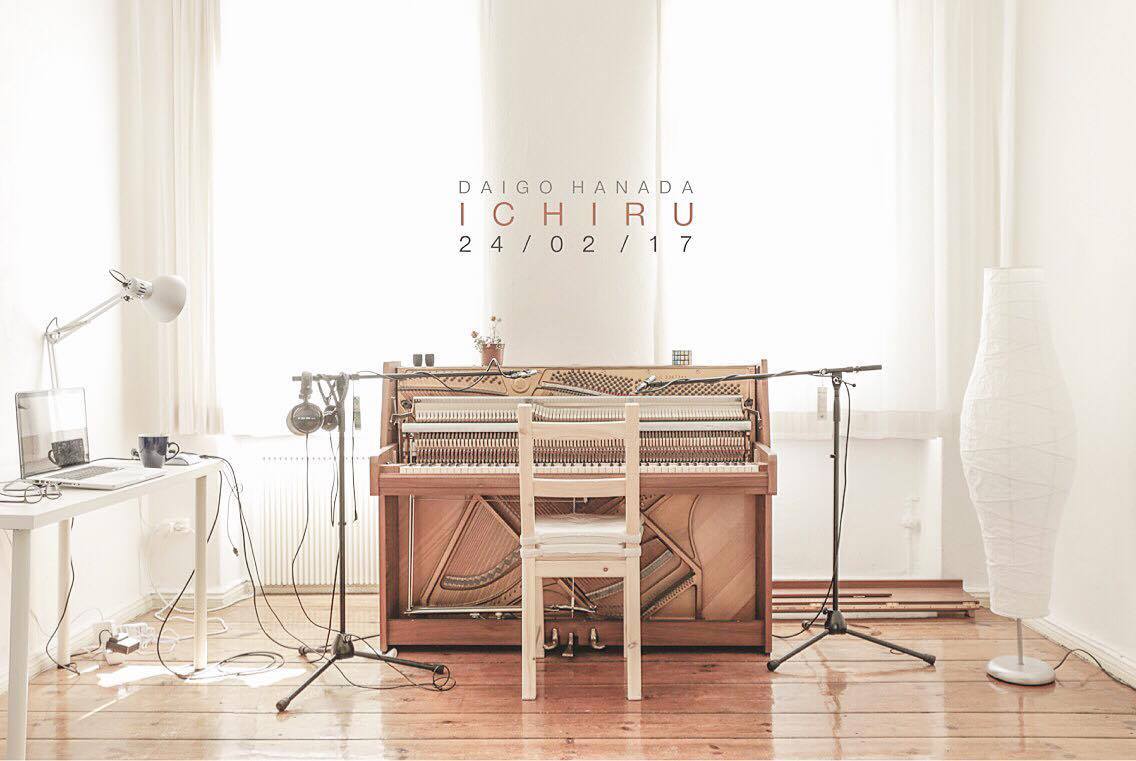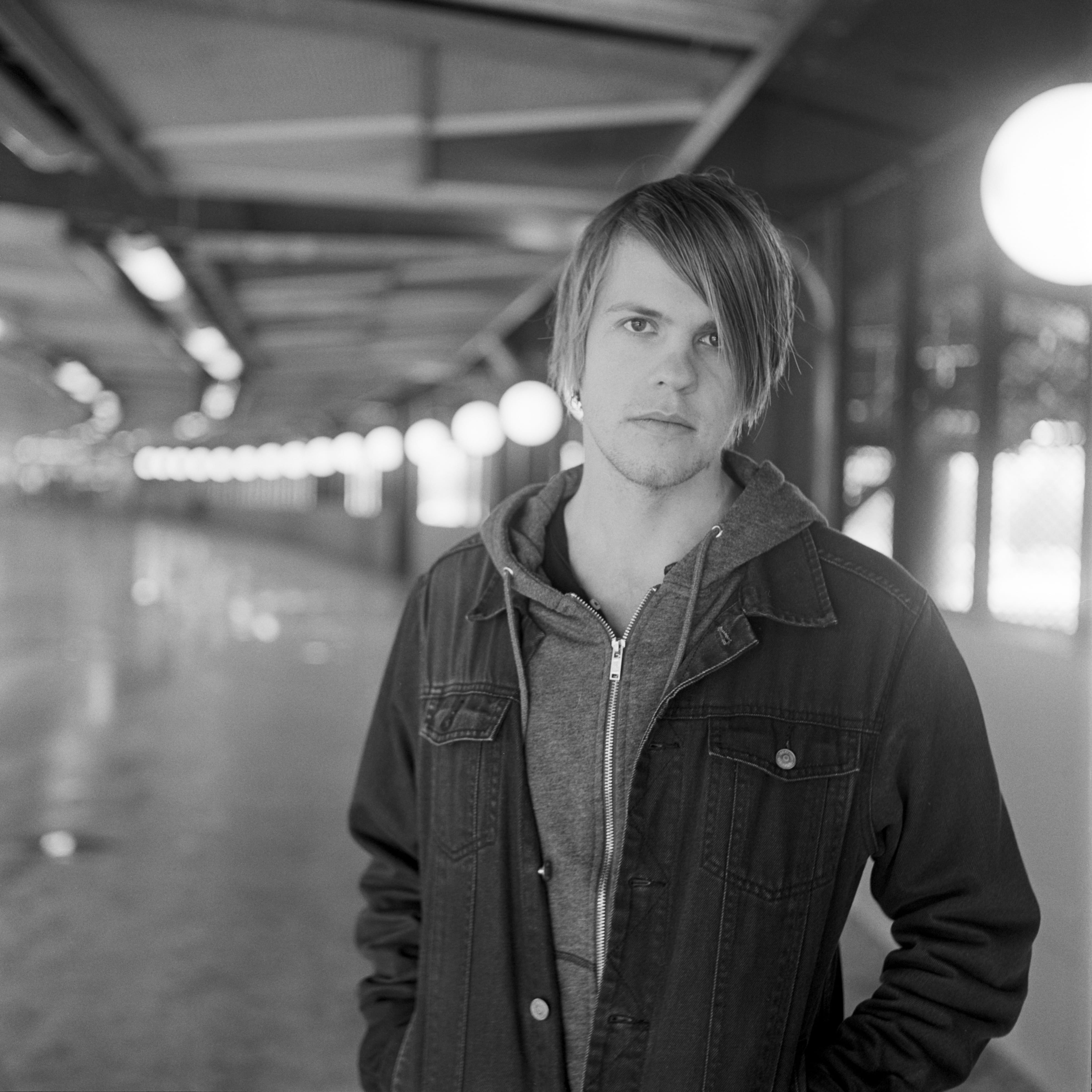Paces by Jakob Lindhagen is a modern classical album, which has an experimental feel and raw musical synergy, which communicates, inner passion and struggle. Jacob is from Sweden, when you…
Daigo Hanada – Ichiru

Daigo Hanada’s links with Moderna records to come up with an artful masterpiece, Ichiru. This is expected because the label is known to nurture talents from artists with unique voices and compositional styles. After listening to the album, we can all agree that Daigo Hanada comes up with a magnum opus that sets the pace for Modern Classical music from start to finish. Right from the track list, the album elicits a narrative that invokes intense emotions traversing through one composition to the next. Hanada forms a compelling a story without even uttering a single word throughout the whole album.
The album takes off with “Silhouette”, the perfect track to set the mood for the creativity that is to follow. An overwhelming mood is created by the soft piano chords makes culminates in a slow calm manner as the stage is set for the rest of the album. “Butterfly” follows with a surreal sentiment which is evoked by the ghostly aura from the piano chords softly, triggering your inner emotions to come to life. The composition ends as soon as it had begun, leaving the listener in full suspense. This effect works effectively in the portrayal of the narrative Hanada seems to present. Unique tunings all through the album push at your acceptance of what tonality is and how it is supposed to function. This is particularly prevalent in “Weak” as the piece takes a more melancholic tone as a result of the slow piano chords carefully created by the masterful fingertips of Hanada. It can be safe to assume that the title directly reflects on what the song is meant to do the listener. The composition would fit perfectly in a movie scene where the protagonist’s strengths are put to the test in some sort of challenge.
 Daigo manages expertly to transport the listener’s imagination to different scenarios with every track. Listening to “Fragment I” paints vivid pictures of the skilful twirls of a ballet dancer to the slow and comforting rhythm created by this song. However, the composition is short-lived further helping in enhancing the effectiveness of storyline feel of the whole album. “Pfau” and “Portrait” are among the top favourites in Ichiru. The two songs are full of the traditional elements of classical music, but there is an undeniable feel of modernity that emanates from them. Pfau is a German term meaning peacock and the track makes a point of living up to its title. Hanada’s admiration for the German culture due to his short stay there during the creation of Ichiru can be termed to be the inspiration for this track.
Daigo manages expertly to transport the listener’s imagination to different scenarios with every track. Listening to “Fragment I” paints vivid pictures of the skilful twirls of a ballet dancer to the slow and comforting rhythm created by this song. However, the composition is short-lived further helping in enhancing the effectiveness of storyline feel of the whole album. “Pfau” and “Portrait” are among the top favourites in Ichiru. The two songs are full of the traditional elements of classical music, but there is an undeniable feel of modernity that emanates from them. Pfau is a German term meaning peacock and the track makes a point of living up to its title. Hanada’s admiration for the German culture due to his short stay there during the creation of Ichiru can be termed to be the inspiration for this track.
“Ichiru” marks the beginning of the second half of the album. At this point, it becomes amazing how the composer was able to maintain the narrative feel of the album while managing to keep the listener captivated. This is an incredible feat displayed by Daigo Hanada which should not go unnoticed. The virtuoso masterfully shifts through various themes by simply varying the intensity of the piano chords from track to track. Also, Hanada uses a tonal form in his music to effectively engage the listener’s emotion in his work. For instance, there are background sound effects that can be heard in Ichiru which are reminiscent of the morning dew as it evaporates at the first heat of the golden sunrise.
The LP is full of lovable like “Fragment II”, which has an ambient face but percolates with classical music notes just below the surface. It can be viewed as a breath of breath-slower for a composition, conserving its energy for the final moments when it arpeggiates, then sighs to a close. It is immediately followed by “Solitude”, another commendable track from Ichiru. Rolling notes empower “Solitude”, its intensity measured in velocity as it spins through a minimalist cadence. “And This Is How It Ends” is proof that Daigo Hinada is not to be dismissed easily when it comes to creating modern classical compositions. The song slowly builds up to reach a climax that is symbolic of an unexpected goodbye wave. The track also creates the required mood for the final composition to follow.
By the time “Also” plays, the final and longest tracks in the Ichiru, Daigo has already made a conclusion to his narrative. The song makes sure to combine all of the themes, moods, and tones registered from the previous tracks, merging them in harmony to symbolise the finale of Hanada’s masterpiece. It can be viewed as some sort of summary. The track steadily rises from a slow beginning to end on a vibrant note in celebration of what Hanada has accomplished in the album. “Close” follows immediately and just like the name suggests, this is the closing to Daigo Hinada’s work of art. And just like the introduction to the album, the finale takes a similar approach with a calm and steady finish to the album.
Ichiru is a solo piano album at its center. Daigo Hinada conforms solely to piano chords as his expressive style evokes certain emotions from the listener all through this work. This, in turn, creates a ghostly tenor that keeps you engaged and yearning for more in the end. The more, the listeners hears and becomes attuned to Ichiru, the more they’ll understand it better. Overall, the album is bound to transform you into a Hanada fan and will get you searching far and wide for more of his and other Moderna’s works.
http://modernarecords.com/
https://www.facebook.com/modernarcrds
https://modernarecords.bandcamp.com/album/ichiru



This Post Has 0 Comments